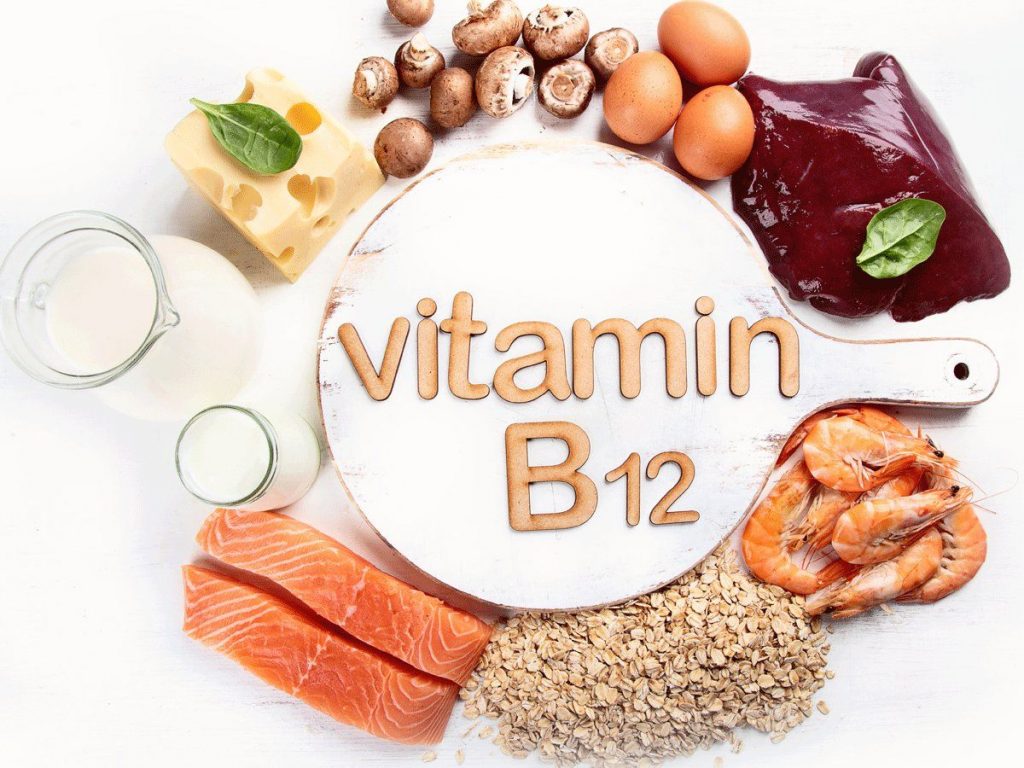Vitamin B12, also known as cobalamin, is an essential vitamin that your body needs but cannot produce.
It’s found naturally in animal products, but also added to certain foods and available as an oral supplement or injection.
Vitamin B12 has many roles in your body. It supports the function of your nerve cells and is needed for red blood cell formation and DNA synthesis..
Vitamin B12 supplements may benefit your body and overall health in different ways, from helping your eyes and mind to benefiting your bones, hair, and skin.
What Does Vitamin B12 Do?
Vitamin B12 helps your body produce energy by converting carbohydrates into glucose.
Vitamin B12 also helps the nervous system function effectively. Working together with vitamin B9 (folate), it helps iron function better and helps the body to make healthy red blood cells. Together, folate and vitamin B12 work to produce S-adenosylmethionine (SAMe), a compound that assists with mood and immune function.1
Hydrochloric acid in the stomach separates vitamin B12 from the protein in food. Vitamin B12 is then absorbed by the body and combined with a protein made by the stomach called intrinsic factor.
If a person can’t naturally make intrinsic factor, they have pernicious anemia. This means that they have difficulty absorbing vitamin B12 from dietary supplements and all foods
Health Benefits of Vitamin B12
Vitamin B12 has many health benefits. It is known to help memory, mood, the nervous system, iron levels, heart health, hair, nails, and skin.
- Helps with red blood cell formation and anemia prevention
Vitamin B12 plays a vital role in helping your body produce red blood cells.
Low vitamin B12 levels cause a reductionTrusted Source in red blood cell formation and prevent them from developing properly.
Healthy red blood cells are small and round, whereas they become larger and typically oval in cases of vitamin B12 deficiency.
Due to this larger and irregular shape, the red blood cells are unable to move from the bone marrow into the bloodstream at an appropriate rate, causing megaloblastic anemia.
When you have anemia, your body doesn’t have enough red blood cells to transport oxygen to your vital organs. This can cause symptoms like fatigue and weakness.
2.Brain Health
Studies show that vitamin B12 can help with brain and nervous system function, memory, mood, and depression.
Research has concluded that patients and people in the general population with depression have both low folate and low vitamin B12.Other studies have shown that vitamin B12 deficiency leads to poor memory.
3.Skin Health
Vitamin B12 is known to help the skin, hair, and nails. Deficiency in the vitamin leads to discolored patches, skin hyperpigmentation, vitiligo, reduced hair growth, and more
4.Heart Health
Studies show that vitamin B12 reduces homocysteine levels in the blood. Homocysteine is an amino acid that’s connected with an increase in heart disease.Researchers have found that people who have modestly elevated homocysteine levels have higher rates of heart attack and stroke.
Vitamin B12 is an essential nutrient in the human diet. It’s critical for the development and normal functioning of many organs in the body. You should try to get your daily recommended intake of vitamin B12 from foods or taking supplements that naturally have vitamin B12.

